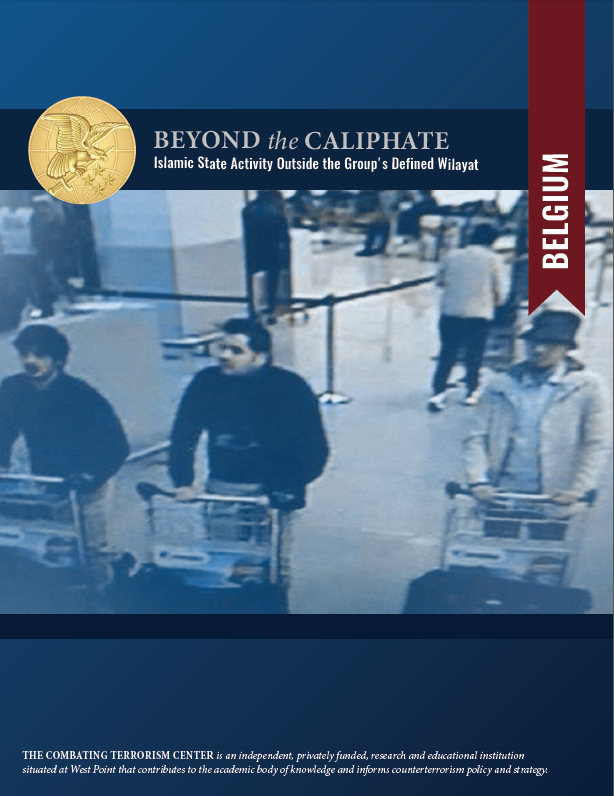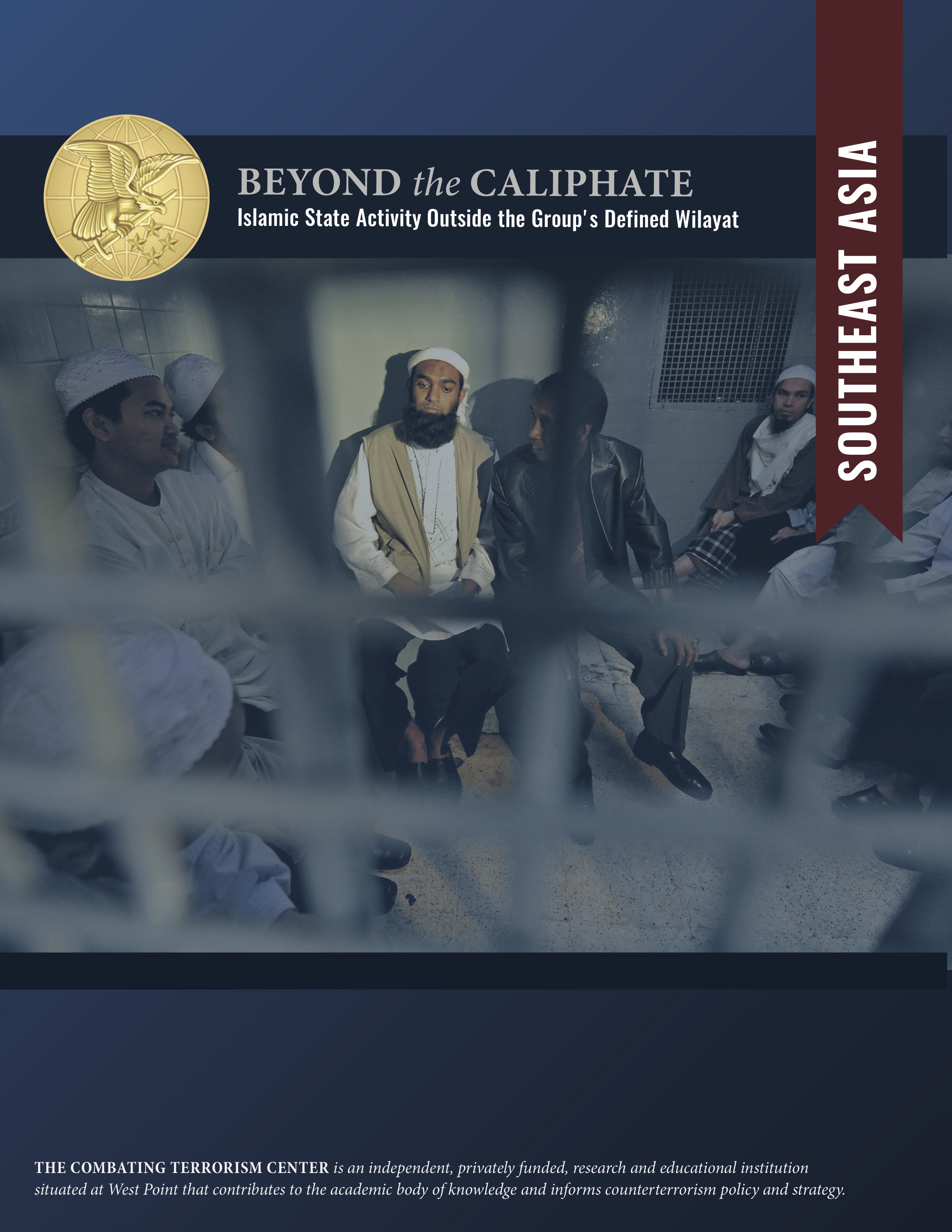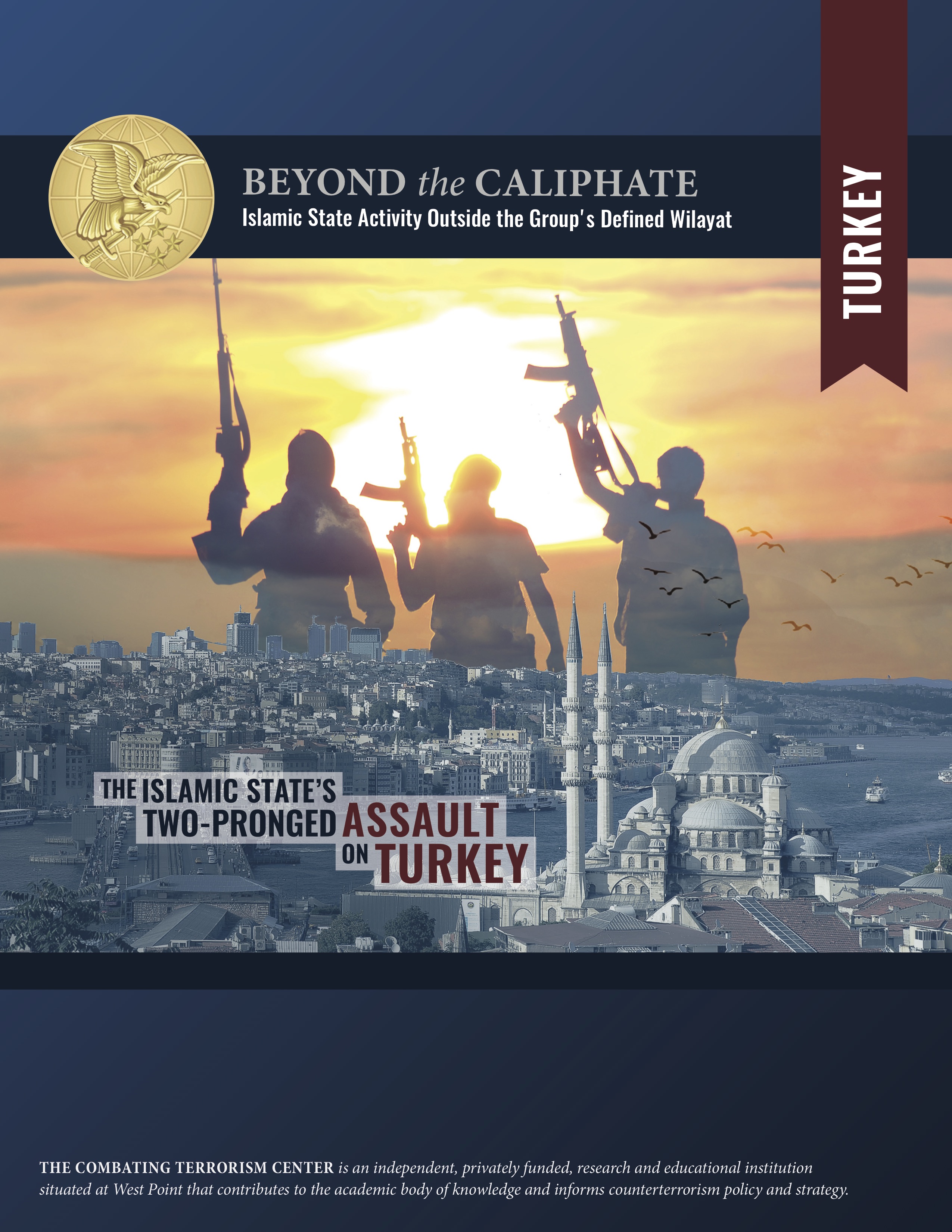Beyond the Caliphate
This project documents and identifies activity linked to and inspired by the Islamic State outside of the territory it claims as part of its physical Caliphate. In doing so, the project seeks to provide insights into how the influence, operational reach, and capabilities of the Islamic State are changing in certain locales over time.
To provide a nuanced analysis of the group’s operational activity, the Combating Terrorism Center (CTC) has created a database that categorizes different indicators of such activity (see methodology overview here for details). The temporal starting point for the data collection is June 2014, when the group’s Caliphate was officially created. Since that point in time, CTC researchers have collected open-source data regarding the Islamic State’s operational activity in select locations outside of the physical territory claimed by the group.
As collection and analysis continues, the CTC plans to release a number of short country and regional reports that leverage the data CTC has collected. All releases will be available on this page.

Belgium
“Beyond the Caliphate: Belgium” is the fourth case study released as part of the Combating Terrorism Center’s Beyond the Caliphate project.
The data compiled for this report points at a highly significant Islamic State presence in Belgium. Since June 2014, there were four attacks and 103 arrest actions related to the terrorist group, of which an overwhelming majority was directly linked to Islamic State operatives in Syria or Iraq. These connections relied heavily on local cells, making it easier for Belgian followers to get in touch with the organization.
The data reviewed in the report also shows how the Islamic State threat in Belgium is both international and homegrown, as the 135 individuals in the dataset were citizens of 12 different countries. Sixty-five percent were Belgian citizens. Thirty-eight individuals, 33% of the total, were either born in Morocco, had Moroccan citizenship, or had family roots in the country. And 29 of the 38 Moroccan-linked individuals were Belgian citizens, a statistic that reinforces the homegrown yet transregional nuances with which Belgian counterterrorism authorities must grapple.
Attack data highlights a different trend, as individuals inspired by the Islamic State conducted three out of the four Islamic State–related attacks in Belgium over the timeframe studied. And while the attacks conducted by inspired actors were far less sophisticated and much less lethal, these plots are harder to detect and foil and can still help the Islamic State to maintain its relevance over the longer term.

Morocco
“Beyond the Caliphate: Morocco” is the third case study released as part of the Combating Terrorism Center’s Beyond the Caliphate project.
Even though there have been no attacks by the Islamic State in Morocco to date, this study finds that 33 terrorist plots linked to or inspired by the group have been uncovered in Morocco since June 2014. It also finds that slightly more than 60% of those plots had direct links to Islamic State operatives either based in Syria or Iraq, or within Morocco itself. In the majority of those cases, the Islamic State attempted to “remote control” and provide operational guidance to local cells from afar.
Given the Maghreb’s strategic location and the links between operatives of Moroccan descent and recent attacks in Europe, these attempted plots serve as a warning to the international community that Morocco is not to be overlooked. Indeed, as increasing numbers of communities within close proximity to Morocco see violence from actors linked to or inspired by the Islamic State, the data reviewed in this study demonstrates how Morocco could very well become a stage for similar forms of violence.

Southeast Asia
“Beyond the Caliphate: Southeast Asia” is the second case study released as part of the Combating Terrorism Center’s Beyond the Caliphate project.
This particular case study provides context to the siege of the Philippine town of Marawi, as it identifies trends in attacks, plots, and support activity (ending in arrest) linked to and inspired by the Islamic State in Southeast Asia from June 2014 through April 2017. This includes a review of Islamic State activity in the Philippines prior to the May 2017 assault on Marawi by the Maute group (an organization that has pledged bay`a to the Islamic State).
The study finds that the Islamic State is leveraging local militant groups to solidify and expand its presence in Southeast Asia. While the majority of Islamic State activity in Southeast Asia occurred in Malaysia and Indonesia, most attacks were conducted in the Philippines, specifically in regions where local militant groups have engaged in violent conflict with the state. The study also finds that nearly half of all Islamic State-linked attacks and plots in the region had financial and/or communication ties to Southeast Asian Islamic State operatives in Syria where group members sought to enable and guide attacks remotely.

Turkey
“Beyond the Caliphate: Turkey” is the first case study released as part of the Combating Terrorism Center’s Beyond the Caliphate project.
The report finds that Islamic State activity in Turkey is clustered around major cities and along the country’s southern border with Syria, likely due to proximity, travel routes, and population density.
The majority of Islamic State-linked attacks and plots in Turkey were also found to have some (formal or informal) connection back to the group in Syria and Iraq.
The majority of attacks in major cities were conducted using explosive devices primarily delivered by suicidal means, while the plurality of attacks on the southern border utilized rockets.
Lastly, the Islamic State over the time period studied the Islamic State tended to attack soft, low-security targets in Turkish cities.
 Skip to content
Skip to content
